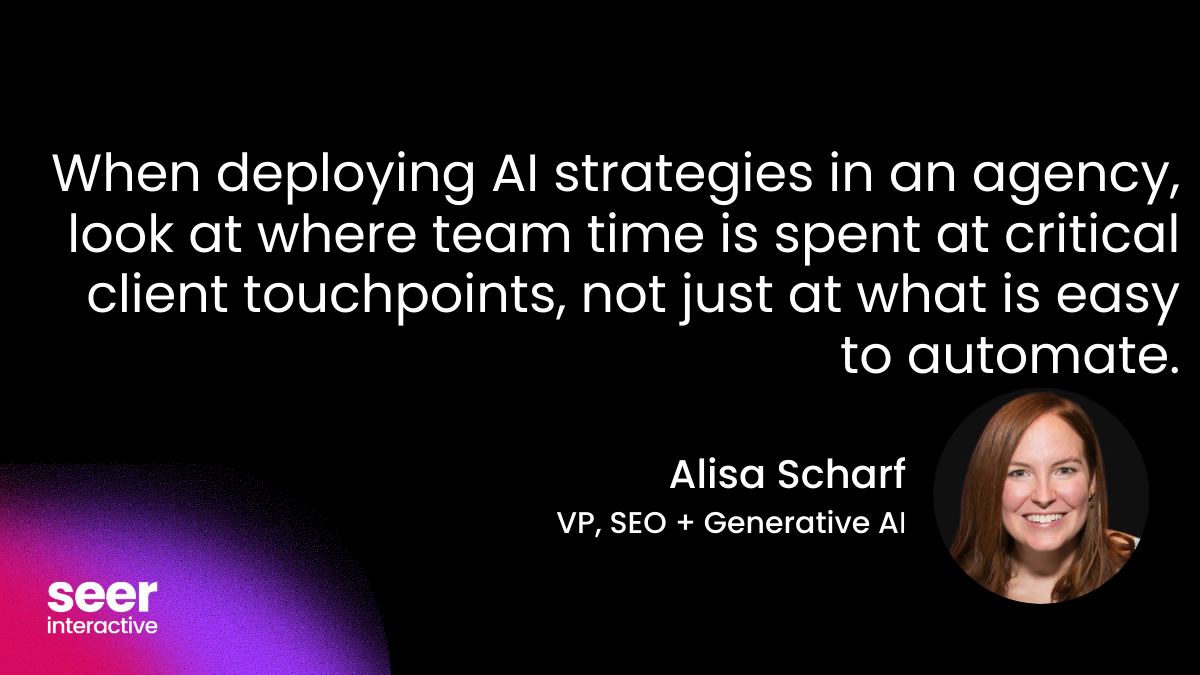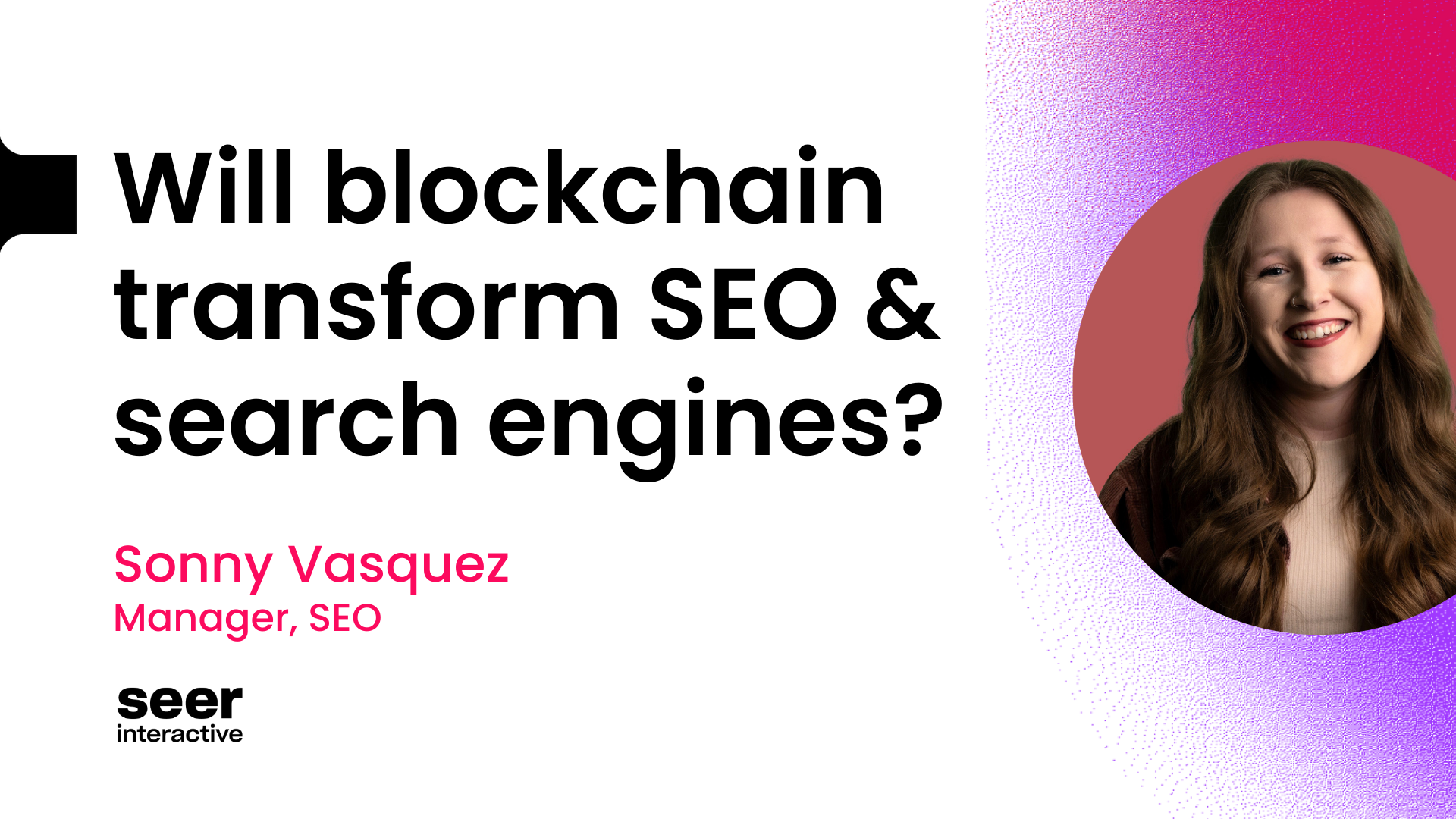Once you decide to hire an SEO agency, you have to decide which agency to hire.
Whether you are going through the RFP process or reaching out to agencies directly, these 14 questions will help you evaluate which agency is the best fit for your business.
General and Administrative Questions
Question 1: “What is your process for creating goals for an SEO engagement?”
Why you should ask this question: You are hiring an SEO agency to help you hit your goals. The agency should be able to effectively explain how they set goals and work towards achieving them.
What you should look for in an answer:
- Are they proposing a collaborative approach to goal setting?
- Are they mentioning tying SEO goals to broader business goals?
- Are goals tied to conversions and revenue, not just traffic and keyword rankings?
Question 2: “Tell me about the team that will work on my account.”
Why you should ask this question: You need to understand who will be working on your account and if the agency has the right personnel to support your needs.
What you should look for in an answer:
- Are there multiple team members on the account?
- Will you have a dedicated point of contact?
- (If working with more than one division with the agency) will you have a centralized point of contact across teams?
- Will you have a designated escalation point?
- Will there be specific subject matter experts (SME’s) available for niche questions and analyses in areas like technical SEO, local SEO, industry-specific areas, etc.?
Question 3: “Explain how communication will work between our teams.”
Why you should ask this question: Regular, effective communication is essential to SEO success.
What you should look for in an answer:
- Will there be a specific communication platform used?
- What is the expectation for response time from the agency?
- Will you have weekly calls?
- Will there be in-person meetings, quarterly business reviews (QBR’s), or other larger meetings throughout the engagement?
- Is the account team available for ad hoc meetings?
Question 4: “How is pricing structured?”
Why you should ask this question: An understanding of how the agency prices engagements from the onset will eliminate confusion and frustration down the line.
What you should look for in an answer:
- Can they provide a pricing range or a project minimum?
- Do they bill by the hour, or by the project/deliverable?
- Is there a 30, 60, or 90 day “out” included in the contract?
SEO-Specific Questions
Question 5: “Explain your approach to SEO.”
Why you should ask this question: This question will help you understand the agency’s philosophy, and determine if there is strategic and cultural alignment with your business.
What you should look for in an answer:
- Are they committed to learning your market, brand, product, and customers?
- Do they reference understanding your “audience”, speaking to their motivations, behaviors, and pain points?
- Are they data-driven?
- Do they mention goals (see above), and tie SEO strategies to business impact?
Question 6: “What do you consider important ranking factors, and how do you keep up with search engine algorithm and industry updates?”
Why you should ask this question: This should peel back the layers from question 5, providing an opportunity for you to understand how proactive and innovative the agency is.
What you should look for in an answer:
- Do they talk about helping people vs. “gaming the system”?
- Are they proactive or reactive to industry change?
- Do they have established partnerships with reputable companies in the industry (tools, search engines, etc.)?
- Do they have an established history of innovation or thought leadership?
- Do they analyze their client portfolio at scale to provide up-to-date insights by industry?
- Do they mention how they will share this information with you?
- Bonus points: if they can correlate specific rankings factors that matter most in your industry.
Question 7: “Explain how you analyze and interpret the organic competitive landscape.”
Why you should ask this question: Competitive analysis is crucial to formulating a strong SEO strategy. They should be able to explain their specific approach and what makes it unique and effective.
What you should look for in an answer:
- Will they focus solely on your “known” business competitors, or are they able to analyze the landscape as a whole and identify true search competitors?
- Will they break out competitive insights by keyword theme and/or line of business?
Question 8: “What is your approach to SEO keyword optimization?”
Why you should ask this question: You need to know how they think about keywords because keywords are still foundational to many SEO analyses.
What you should look for in an answer:
- Do they mention understanding the “intent” behind keywords?
- How do they determine keyword relevancy?
- Do they use paid search (PPC) data to evaluate SEO keywords?
Question 9: “What is your approach to content optimization?”
Why you should ask this question: Building on question 8, this question will help you to understand if they think like empathetic marketers, or are just focused on improving keyword rankings.
What you should look for in an answer:
- Are they focused on optimizing for the “user-first”?
- How content reads and feels to humans should be the most important thing.
- Do they mention understanding how and why people consume your content?
- Are UX considerations and potential improvements mentioned?
Question 10: “Explain how you use paid search to influence organic strategy.”
Why you should ask this question: PPC and SEO don’t operate in silos. When people use search engines, they are shown paid ads alongside organic results in the same SERP. Our PPC friends have a lot of actionable data and insights to share with SEO teams, and your agency should lean into this collaboration.
What you should look for in an answer:
- Do they do this at all?
- Do they mention:
- Working with other agencies or in-house teams?
- Using PPC search terms to analyze organic keywords by cost, clicks, conversions, etc.?
- PPC ad copy influencing organic metadata?
- PPC as a “testing ground” for SEO strategies?
- Findings ways to offset PPC spend with SEO, saving you money?
Question 11: “What is your approach to UX?”
Why you should ask this question: UX is immensely important for any website, and it directly affects and is affected by SEO. They should be able to articulate their approach to UX and any UX capabilities that they have.
What you should look for in an answer:
- Do they mention the interplay between SEO and UX?
- With regard to conversion, providing great experiences, and improving behavioral signals for search engines?
- Do they have examples of past UX-related work?
- Are they willing to work with an external UX agency or a separate internal team?
- Do they mention data or specific metrics that can be shared between SEO and UX teams?
Question 12: “What is your approach to video optimization and YouTube?”
Why you should ask this question: Google owns YouTube, and video results have become increasingly prevalent in search engine results in recent years. They should be able to explain their position and capabilities for video optimization.
What you should look for in an answer:
- Do they explain how they will determine if video or YouTube will move the needle in your industry?
- Do they mention technical video optimizations like sitemaps and schema?
- How do they approach YouTube optimization, and measuring success on YouTube?
- Do they have any case studies to share?
Question 13: “Explain your approach to link building.”
Why you should ask this question: This question is intended to illuminate an agency’s priorities, and if they are progressive in their approach to linkbuilding.
What you should look for in an answer:
- Do they mention gray or black hat tactics? If so, run.
- Do they explain if links will or won’t move the needle for your website?
- Do they reference “relationship building” over link building?
- Do they build links for people or for search engines?
Question 14: “Which platforms and tools do you use?”
Why you should ask this question: Knowing what they use will help you to understand their investments in software, where you have tool overlap, and where you can save money on licenses by leveraging an agency.
What you should look for in an answer:
- Are they compatible with your tools?
- Do they have multiple tools used for specialty analyses?
- Are they reliant on a single tool, or a small number of tools?
- How do they deliver reports and visualize data?
- Do they have proprietary tools or scripts?
These questions, when bolstered with additional questions relevant to your specific situation, will help you hire an SEO agency that is the best fit for your business. Interested in learning more about Seer’s approach to SEO? Read our blog posts or case studies to learn more!
Are there any other questions that you like to ask before hiring an SEO agency? Contact us for more information!


